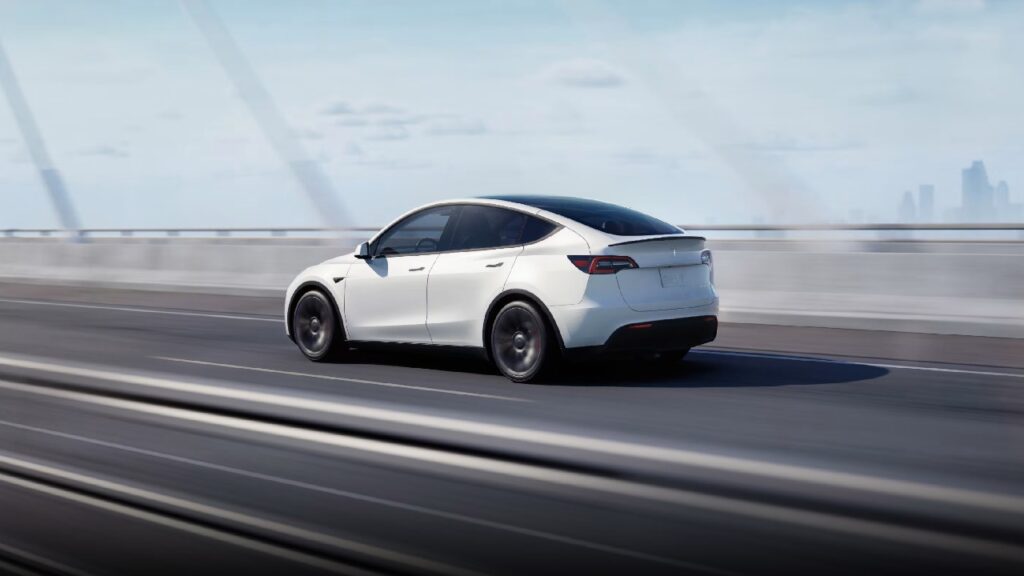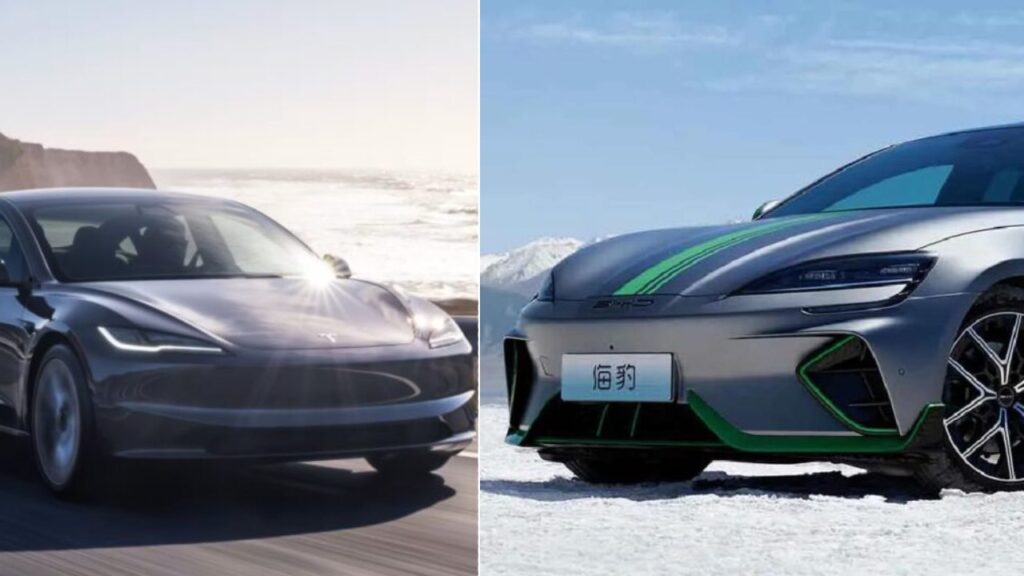The situation is almost similar in terms of global plug-in (BEVs and PHEVs) car sales with these two accounting for over 31%.
The global EV sales data for the first quarter of 2024 reveals some intriguing trends. The stats I am about to share with you have been sourced from EV Volumes. It is a reputed organization and is a part of J.D. Power. This portal has gathered data pertaining to the total global sales of pure electric cars, as well as plug-in cars which include BEVs and PHEVs. The two giants, in the form of Tesla and BYD, dominate the sales charts. Interestingly, 5 car marques comprise of over 55% of global EV sales out of the total 2.03 million.

You might also like: U.S. Could Ban or Restrict Chinese Connected Vehicles
Global Q1 2024 EV Sales
The report mentions that the top five car conglomerates/OEMs for pure EV sales for Q1 2024 are – Tesla, BYD, Geely-Volvo, SAIC (incl. SAIC-GM-Wuling) and Volkswagen Group. Together, they own 55% of total EV sales while the rest of the carmakers own the other 45%. The details of each of these groups/OEMs as per car registration data are as follows:
| Carmaker | Sales | Market Share (Q1 2024) | Market Share (Q1 2023) |
| Tesla | 386,825 | 19% | 23.6% |
| BYD | 300,124 | 14.8% | 14.7% |
| Geely-Volvo | 149,647 | 7.4% | 5.7% |
| SAIC (incl. SAIC-GM-Wuling) | 149,290 | 7.3% | 7.4% |
| Volkswagen Group | 136,949 | 6.7% | 7.5% |
Hawk-eyed among you would instantly notice that there is a significant decline in Tesla sales this year in comparison to the same time period last year. The number of EV sales for BYD and SAIC has remained roughly the same. Only Geely-Volvo has demonstrated healthy growth while the VW Group has also shown some depleting sales.
Global Plug-in (BEVs + PHEVs) Car Sales in 2024
Interestingly, the list of top global plug-in car companies/conglomerates also consists of these 5 players only. However, the order is slightly different when we include plug-in hybrid cars. Still, the total number of plug-in cars sold globally in Q1 2024 is just over 3.21 million. Out of these, the top 5 hold over 51% market share. The breakdown of this data incorporates:
| Carmaker | Sales | Market Share (Q1 2024) | Market Share (Q1 2023) |
| BYD | 624,398 | 19.4% | 21.3% |
| Tesla | 386,825 | 12% | 16.5% |
| Geely-Volvo | 251,106 | 7.8% | 6.1% |
| Volkswagen Group | 205,652 | 6.4% | 7.4% |
| SAIC (incl. SAIC-GM-Wuling) | 190,409 | 5.9% | 5.5% |
This time around, BYD is at the top of the list because it sells tons of PHEVs in the domestic market. On the other hand, Tesla doesn’t sell a single PHEV which is why it slides down to the second spot. Still, it is quite impressive to post such numbers solely from pure EVs. Geely-Volvo maintains its third spot. Volkswagen Group overtakes SAIC this time around to clinch the 4th spot.

You might also like: VW CEO Says PHEVs Are Necessary Transitional Technology
Learn Electric Cars Says
These stats unequivocally show that the initial surge of the electric mobility revolution which was resting on the shoulders of a select few car companies is slowly getting distributed evenly. Sure there is still a long way to go. But the market share of the top 5 players has reduced drastically in Q1 2024 in comparison to the same time period last year. That is also evident when we look at new players and more legacy carmakers emerging on the scene.
Still, numerous established names in the automobile world are yet to enter the EV race completely including the likes of Toyota and Honda. Apart from that, many new emerging markets will also participate and contribute to global EV sales going forward. The EV industry is still in its infancy in many emerging global markets. Once they start chipping in with sales, the market share will be distributed much more evenly.


Pingback: Ford F-150 Lighting Outsells Next 3 Electric Pickup Trucks Combined
Pingback: This Tesla Model S Has Done 666,666 km With Single Battery
Pingback: T-ibcbet99 เว็บเดิมพันครบวงจร
Pingback: โคมไฟ
Pingback: ไก่ตัน
Pingback: Jaxx Liberty
Pingback: สูตรหวยฮานอย คืออะไร
Pingback: 入金不要ボーナス
Pingback: link
Pingback: ร้านแบตเตอรี่ใกล้ฉัน
Pingback: Bauc ET
Pingback: เว็บซื้อหวยลาวพัฒนา แทงได้ง่ายไหม และต่างจาก หวยไทย อย่างไร ?
Pingback: avery albino mushroom
Pingback: สั่งซื้อ หวยออนไลน์ มีกี่ช่องทาง
Pingback: Aviator
Pingback: ร้านเค้กวันเกิดใกล้ฉัน
Pingback: หนังใหม่ออนไลน์
Pingback: จัดงานศพครบวงจร
Pingback: เช็คสลิปโอนเงิน
Pingback: ตู้ล่าม
Pingback: fear of god essentials
Pingback: magic mushroom grow kit
Pingback: online game
Pingback: av
Pingback: รับฉีดโฟม
Pingback: https://lexkazinootzyvy.kz
Pingback: EA Forex
Pingback: legzocasino.kawabanga.kz
Pingback: suzuran168
Pingback: clothing manufacturer
Pingback: รีวิว LSM99